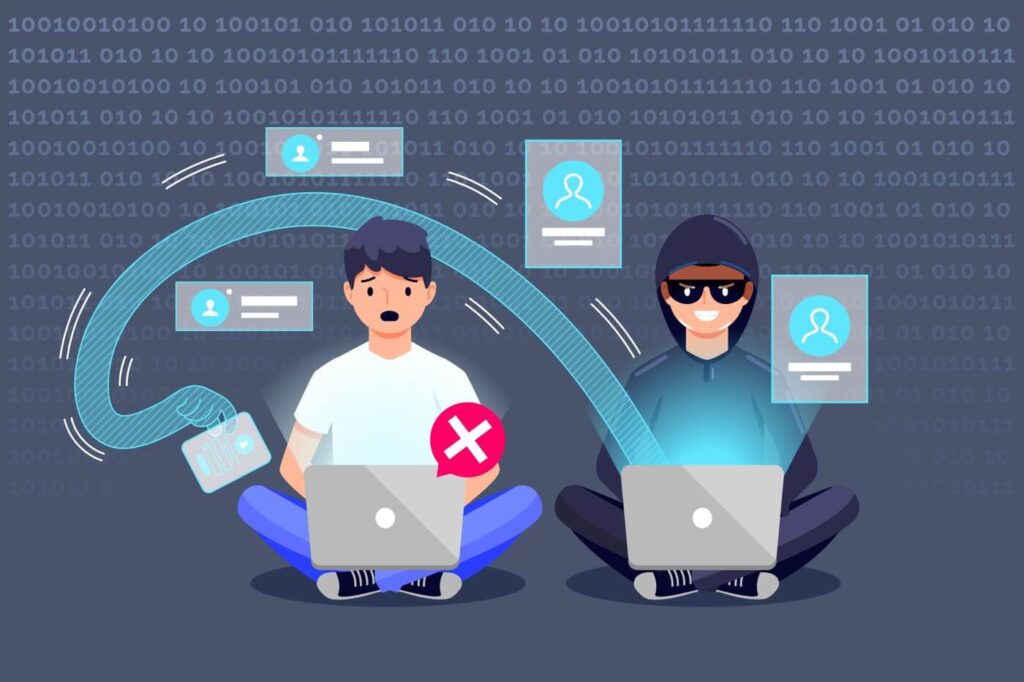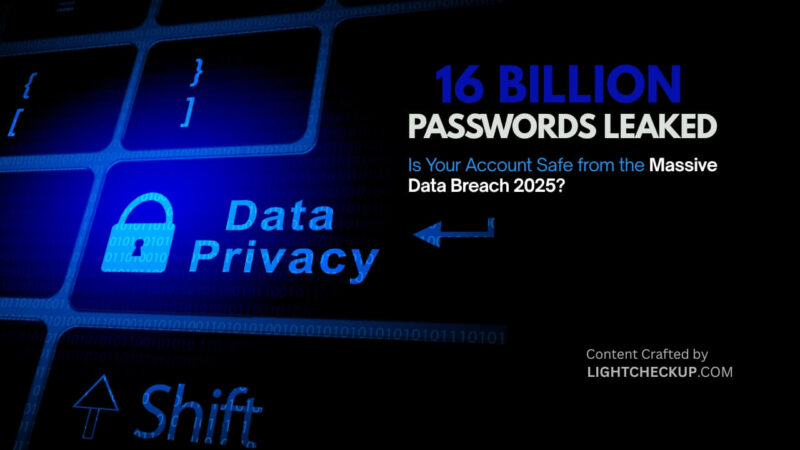The 16 billion passwords leaked or data breach has shocked the cybersecurity world. That is raising concerns about online safety. Reports of 16 billion passwords being leaked have caused many people to worry. People are worried that the passwords of major platforms like Facebook, Google, and Apple could be at risk.
But is this data breach a new cyberattack, or something else?
Let’s look at the facts about the password data breach and see what it means for you.
What Is the 16 billion passwords leaked / Data Breach?
Cybersecurity researchers recently uncovered a staggering 16 billion records leaked in what was initially dubbed one of the largest data breaches in history.
Cybernews discovered a set of data called a “database” that has millions to billions of login information.
These records include usernames, passwords, access tokens, and session cookies. This information could potentially expose accounts on social media, VPNs, developer portals, and even government services.

However, experts, including those at Bleeping Computer, have clarified that this 16 billion passwords data breach is not a fresh cyberattack.
Instead, it’s a collection of credentials that have been stolen before. These credentials were gathered through infostealer malware, phishing attacks, and older breaches.
Infostealers are a type of malicious software that secretly collects login details from infected devices and creates a large database of stolen data.
These logs, which are often shared on the dark web, were put together to make this huge set of data. This data was available to the public for a short time before it was locked down.
Why the Hype Around Data Breach 2025?
The sheer scale of 16 billion passwords leaked has fueled sensational headlines, with some outlets calling it a “blueprint for global cybercrime.” The structured nature of the data—organized with URLs, usernames, and passwords—makes it particularly dangerous for cybercriminals to exploit through credential stuffing attacks, identity theft, or targeted phishing campaigns.
With approximately 5.5 billion internet users globally, this passwords data breach could theoretically affect multiple accounts per person.
These credentials do not appear to be entirely new, despite the alarming numbers. Many of these records are copies of records that were previously exposed, such as in the RockYou2024 breach or the “Collection #1” dataset.
Those 16 billion records showed the ongoing impact of infostealer infections over time, not just one big event.
Read Also: Google Cloud Outages Causes Widespread Internet Disruption
How to Protect Yourself from the Passwords Data Breach
While the data breach 2025 may not be a new attack, it’s a stark reminder to bolster your cybersecurity.

Here are actionable steps to safeguard your accounts:
- Check for Compromises: Use services like Have I Been Pwned or Google’s Dark Web Report to see if your email or passwords appear in known breaches.
- Change Passwords Immediately: If your credentials are exposed, update passwords for affected accounts. Avoid reusing passwords across platforms.
- Enable Two-Factor Authentication (2FA): Add an extra layer of security to your accounts with 2FA, which requires a second verification step.
- Use a Password Manager: Tools like Bitwarden or 1Password can generate and store strong, unique passwords securely.
- Scan for Malware: Run a thorough antivirus scan to detect and remove infostealer malware from your devices.
- Consider Passkeys: Google recommends switching to passkeys, which use biometric authentication for enhanced security.
The Bigger Picture: Why Infostealers Are a Growing Threat?
The 16 billion passwords leaked highlights the growing risk of malware that steals data. These programs are hard to detect, cheap, and easy to find on dark web forums, which makes them popular with cybercriminals.
As new data sets like this appear every few weeks, experts say that organizations must improve their cybersecurity. This means they should regularly audit their systems and use multi-factor authentication. This will help prevent future data breaches.
It’s very important for people to maintain good cyber hygiene. Your risk can be reduced if you regularly update your passwords, avoid suspicious links, and use up-to-date software.
The data breach of 2025 may not be a new hack, but it’s a wake-up call to take your online security seriously.
Read Also: AI Data Usage and Privacy: Meta’s Shocking AI Policy Revealed
Stay Vigilant in 2025 and Beyond
The 16 billion passwords leaked in this massive compilation may not signal a fresh breach, but the risks are real. You can protect your accounts from the fallout of the password data breach.
Stay informed, stay secure, and don’t let cybercriminals exploit your credentials. Check your accounts today and fortify your digital defenses!








